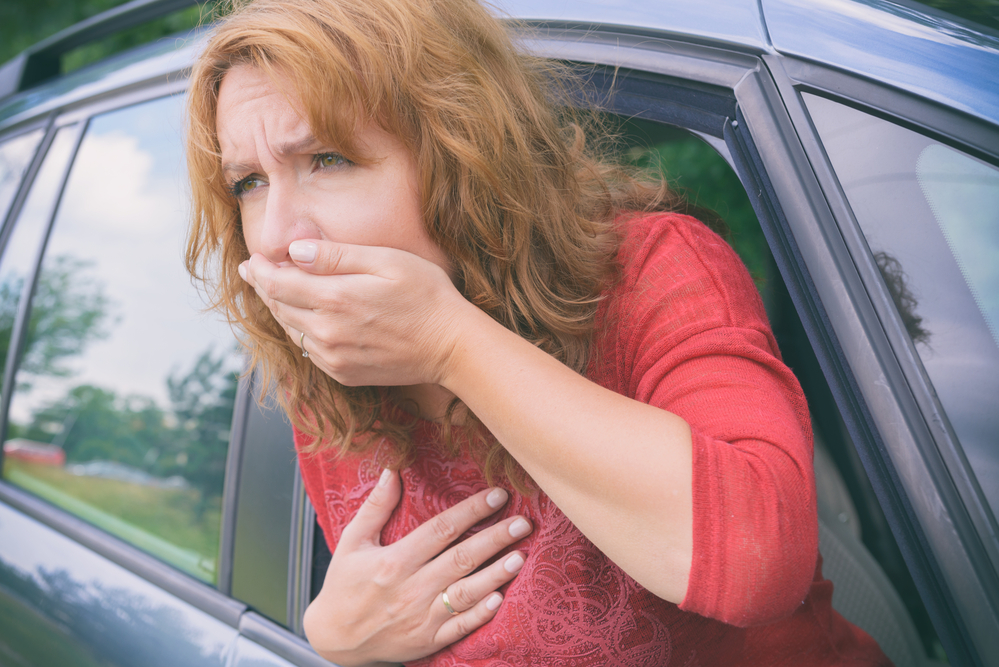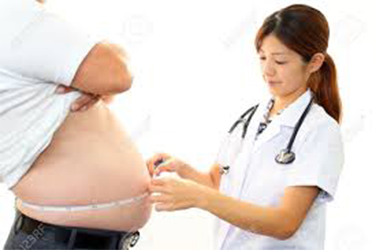Whether you have felt car sick, seasick, or airsick you are experiencing a form of motion sickness. There is no difference between these. Triggers for motion sickness can be amusement park rides, virtual reality experiences, reading while in motion, riding on a boat, plane, car, bus, or train, video games, movies, or 3D movies.
Anyone can get motion sickness. Women and children from ages 2-12 are most affected. Other factors that increase your risk are family history, taking hormonal birth control, inner ear disorders, being on your menstrual period, having migraines, having Parkinson’s disease, or being pregnant.
Cause Of Motion Sickness
What causes motion sickness is a conflict between senses. Your inner ears feel one thing and your eyes see another, this causes mixed signals to your brain. Your brain is confused and causes your body to respond with a wave of stress hormones that ultimately make you feel sick.
If you are in a boat your inner ear will feel the boat bobbing up and down as well as moving side to side, but your eyes may feel like you are stationary if you are inside the cabin. This causes your brain the inability to distinguish if you are moving or stationary.
Symptoms of Motion Sickness
The good news is motion sickness has a 100% survival rate. People survive from it, symptoms usually don’t last that long and sometimes go away rather quickly once your body gets used to the situation. Symptoms though can come on suddenly.
Most common symptoms are feeling dizzy, breaking out in a cold sweat, nausea, and sometimes vomiting.
Other symptoms include inability to concentrate, fatigue, increased saliva, headaches, pale skin, loss of appetite, irritability, and rapid breathing.
Symptoms usually resolve when you stop moving.
Diagnosis of Motion Sickness
Most cases of motion sickness are mild and self diagnosed. In some cases a doctor may need to examine you. They will ask about your symptoms, when they happen, and take a family history. They may want to check your ears for any inner ear diseases.
Treatment for Motion Sickness
Where you sit when you are in a vehicle can help ease your motion sickness. You will always want to face forward when traveling. When riding in a boat sit near the middle on the upper deck. In a bus you will want to sit in a window seat. The front passenger seat of a car is the best spot for people who get carsick. If you are booking a cruise try to book your cabin in the front or middle of the ship on the lower level closest to the water. Get a seat in the wing section of a plane. When riding on a train, get a forward facing window seat.
If you feel your symptoms start to come on you can try to relax, take deep breaths, focus on something else such as counting backwards.
Closing your eyes may help as well.
Some people find sleeping can help ease their motion sickness.
Reclining back in your chair.
If you are on a boat, focus on something that is not moving such as the horizon in the distance.
Breathe in mint, ginger or lavender scents.
Eating hard candies that are peppermint or ginger infused can also be helpful.
Fresh air can also help alleviate symptoms or also clear the air of bad odors which can sometimes be a trigger to motion sickness.
Drink plenty of water before a trip, but eat light meals beforehand. Avoid heavy greasy foods.
No alcohol and no smoking.
Acupuncture wrist bands can also help.
There are some medications that can help with motion sickness. Antihistamines used for allergies that cause drowsiness can help. Non drowsy medications will not help with motion sickness. Scopolamine patches can also help. This is a prescription medication that you apply behind your ear 4 hours before use. The patch will last up to 3 days after application. Other medicines such as cyclizine, meclizine, and promethazine can also help.
When should you see a doctor?
You will need to see a doctor if symptoms do not stop once movement stops. If you experience chronic, persistent, nausea and vomiting you will want to reach out to your doctor. If you have motion sickness symptoms without motion activity or if you are showing signs of dehydration. Rarely does motion sickness cause any other serious issues.
Conclusion
Whether you suffer from airsickness, seasickness, or car sickness they are all forms of motion sickness. 1 in 3 people will experience motion sickness at some point in their lives. Motion sickness can affect anyone. It is how your inner ear, and eyes perceive movement that may send mixed signals to your brain causing your body to overreact with stress hormones, which in return will make you feel sick.
Super Lytes is the ultimate rehydration and electrolyte supplement! Learn more by clicking here!
1 out of every 3 people will experience motion sickness during their lifetime! Get help with car sickness, seasickness and airsickness. #HealthSurgeon
Sources:
https://oceanservice.noaa.gov/facts/seasickness.html#:~:text=If%20you’ve%20ever%20had,erratic%20motion%20on%20the%20water.
https://www.webmd.com/cold-and-flu/ear-infection/motion-sickness
https://my.clevelandclinic.org/health/articles/12782-motion-sickness
https://medlineplus.gov/motionsickness.html
https://www.medicalnewstoday.com/articles/176198#diagnosis









